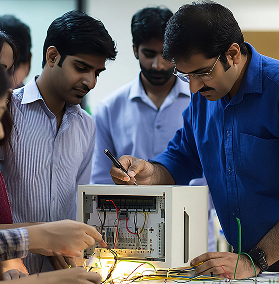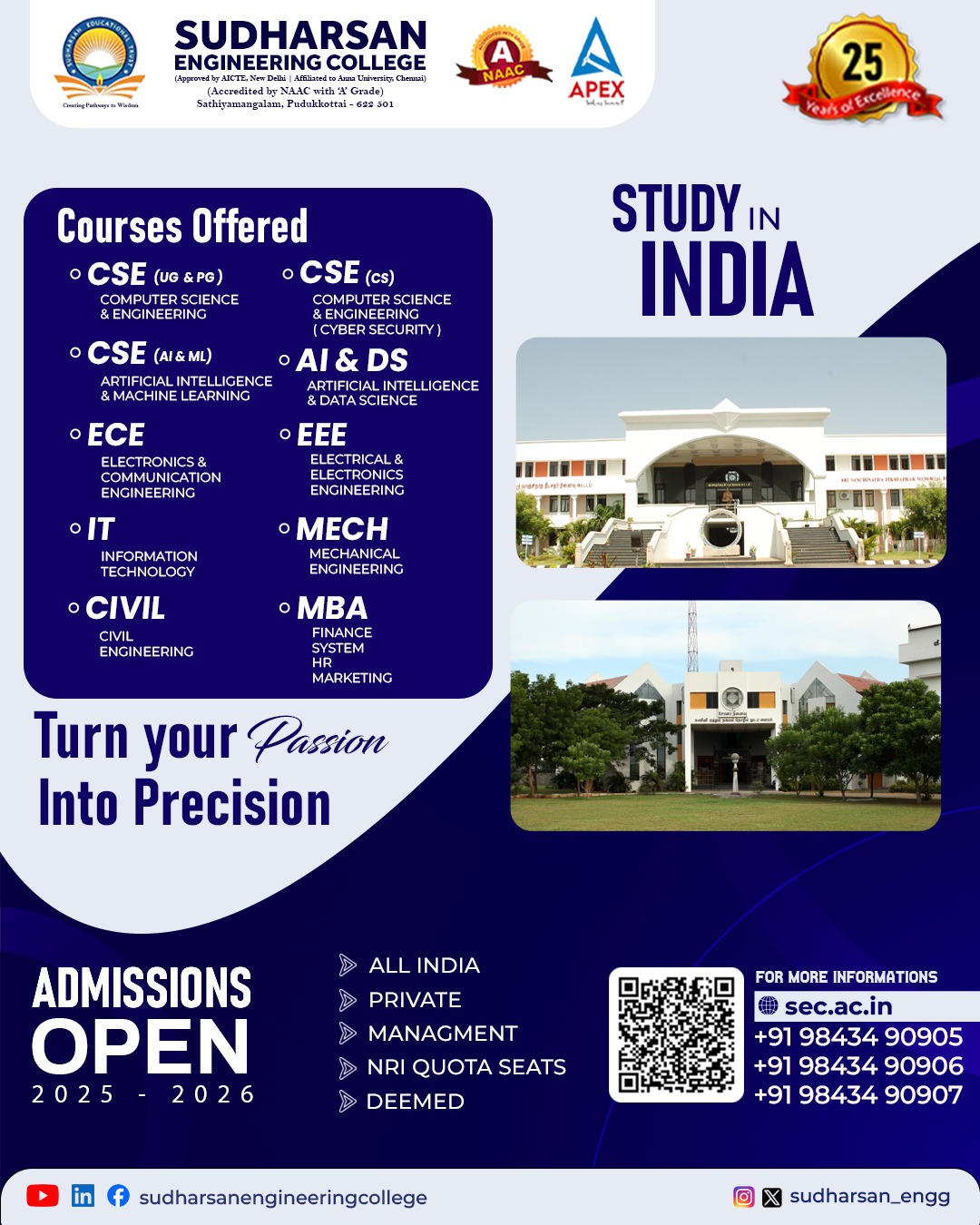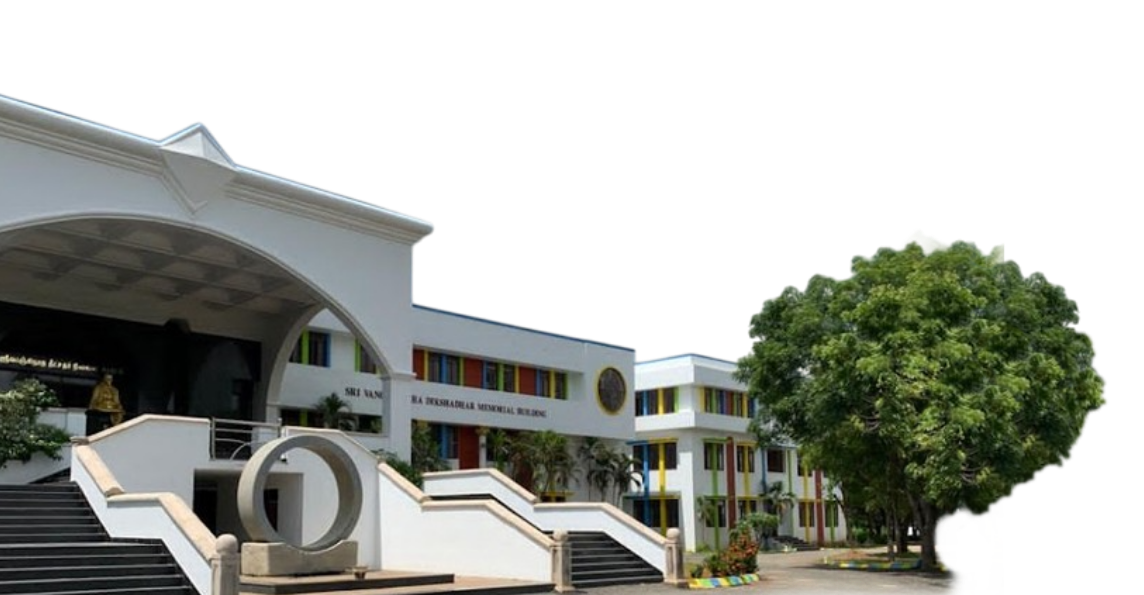Department of Cyber Security
The Department of Computer Science and Engineering with a specialization in Cyber Security was established in 2025 with an undergraduate intake of 60 students. The B.E. programme follows the curriculum prescribed by Anna University, Chennai, ensuring academic rigor and industry relevance.
-
In today’s rapidly evolving digital landscape, the demand for skilled cyber security professionals is at an all-time high.
-
The B.E. in CSE – Cyber Security at Sudharsan Engineering College is designed to produce experts capable of protecting and securing digital assets, ensuring the confidentiality, integrity, and availability of critical information systems.











